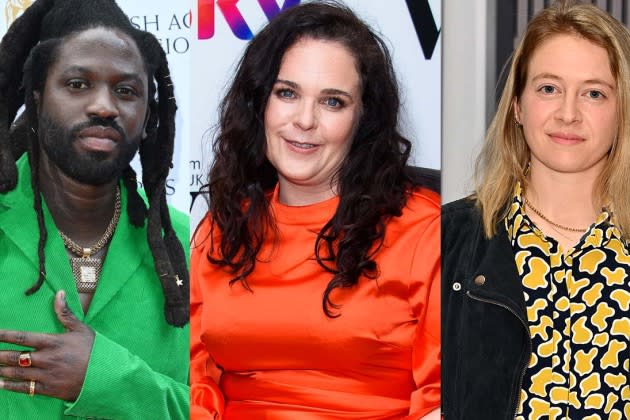Edinburgh TV Fest Shines Spotlight on Diversity: “Good Shows Travel and Are Global”

Diversity and how to best ensure it in the British TV industry was a topic of debate on Wednesday, the opening day of the Edinburgh TV Festival.
During a panel entitled “Insert (Diversity) Here,” for which The Hollywood Reporter served as media partner, writer-director and actor Adjani Salmon (Dreaming Whilst Black) signaled there aren’t enough diverse people in positions of power yet. He recalled pitching the BBC without success before starting to work with production firm Big Deal Films, which focuses on inclusive storytelling.
More from The Hollywood Reporter
Then fellow panelist Sarah Asante, back then a commissioner at the BBC but now UKTV commissioning editor, saw it and gave it a chance on BBC Three. “I would ask myself ‘why is it that it just so happened that the only Black woman who read it is the person who saw the potential in it,” Salmon said. “From that perspective, yeah, you are right, we need more commissioners who look like us,” which also makes it easier for them to “understand our sensibilities.”
Working Title head of drama Surian Fletcher-Jones and ITV Studios-backed 5 Acts Productions creative director David Davis led the discussion, which addressed how to best support diverse talent, both on- and off-screen, in a way that can achieve meaningful and lasting change in the television industry.
Davis criticized that “minority shows” often get labeled as too niche for no good reason. “We can watch Normal People about two Irish people living in Ireland going to university in Ireland falling in love, but it’s universal, because what, they are both white?” He added that Empire proved that millions can watch shows, “because good shows travel and are global, and we need to stop people saying that our shows are too niche to be global” as it is “just not true.”
The other panelists were actress Cherylee Houston (Coronation Street), who co-founded TripleC, which is dedicated to changing the way disabled people are included in and access the arts and screenwriter and actor Genevieve Barr (Press, Call the Midwife).
Houston noted that it is key for people to get a first foot into the entertainment industry, “because then you will get more employment.” She said that otherwise there are “so many stereotypes.”
“From my experience with disability, I can spot from miles whether someone uses a wheelchair in real life or not,” she said. “It is really disheartening, because what we are doing is telling people that is who we are, and that is not the truth, so then you are battling that in society. Society isn’t educated, because we are giving the wrong information out.”
Her 12 years on Coronation Street, however, have been “brilliant” as it has given her a great platform, she said.
Meanwhile, Asante said, “I see my role as the demystifier” as often “a creator of color will absolutely not know that sausage-making process” of the industry.
Barr said she feels that “things are a lot more considered” these days. “I have a positive experience” thanks to Channel 4, she said, adding she hoped that will continue. “As a deaf person growing up, I didn’t really know that I was deaf,” she also shared about her early years. “People didn’t really talk about it.”
Asked who decides what is authentic, Salmon said: “Even as a Black person, I at best … understand myself. I cannot speak for Black Britain.” He argued that “sometimes that is the arrogance of thinking ‘I am, therefore I know.” He added: “If you are from the community or not, I think the key thing is focusing on who are you dedicating the work to.”
Best of The Hollywood Reporter

 Yahoo News
Yahoo News 